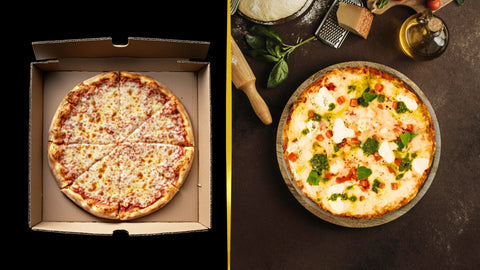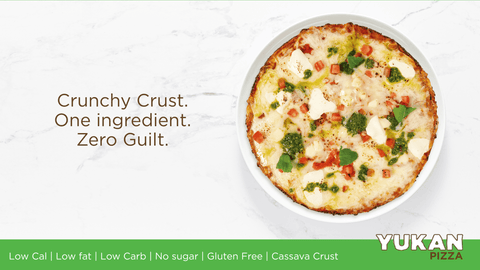Next Generation Companies redefine business success by breaking traditional rules. A recent survey revealed 43 changes of meaning and over 600 prototypes of practice changes that showcase these organizations' unique operations. The research classified only 31 companies as traditional, while 92 emerged as next generation company leaders, and 867 landed somewhere in-between.
The next generation trust company's approach to building customer relationships has undergone a radical alteration. Acosta Group's Clean Label Insights Study shows that 81% of shoppers believe purchasing clean-label food products matters significantly. Customer's growing need for transparency has propelled the ultra clean label movement, particularly in specialized markets like gluten-free products. Next generation businesses prioritize guiding principles and state-of-the-art solutions instead of rigid procedures. Their optimistic view toward growth stands in sharp contrast to traditional business approaches.
The rise of clean label and consumer trust
Consumer trust has become the new currency in the food industry. Transparency and clean labeling are reshaping how companies operate. This fundamental change has created a perfect environment for new companies ready to break traditional business rules.
Why clean label matters more than ever
Clean label means making products with fewer ingredients that consumers can recognize and see as wholesome. The idea has grown into a symbol of consumer trust in food manufacturers [1]. Two in three consumers say ingredients affect their food and beverage purchases. 63% say they pay more attention to ingredients[2] than they did five years ago .
More than half of consumers now look for label-friendly ingredients [2]. A 2015 U.S.-based survey showed that 45% of consumers don't know what "clean label" means. There's a clear gap between younger (18-44 years) and older (45+ years) age groups [3].
The economic effects are clear. The global market for clean label foods reached USD 180 billion in 2020[2]. Label-friendly ingredients should grow from USD 38.8 billion in 2018 to USD 64.1 billion by 2026 [2]. These numbers show how consumer priorities drive big market changes.
Clean label has grown beyond its original scope. What started as a push for simpler ingredients has turned into a complete call for transparency throughout the food system. This change gives new companies a great chance to build trust by being open and authentic.
From ingredients to ethics: what consumers expect
Today's consumers want more than just familiar ingredients. Almost half of "clean eaters" say it means eating less processed foods. Fresh, organic, and simple ingredients top their shopping lists [2].
On top of that, consumers link clean label with overall wellness that covers food safety and transparency [2]. A 2020 survey by FMI–The Food Industry Association and Label Insight found that consumers connected transparency with:
· A complete list of ingredients (62%)
· Ingredients described in plain English (53%)
· Certifications like USDA organic (48%)
· In-depth nutritional information (47%) [2]
Over the last several years, consumers have focused more on transparency, food safety, and sustainability under the "clean label" umbrella [2]. Food contamination incidents have hurt consumer trust worldwide [4]. This has led to less confidence in the food system's integrity.
New food companies must meet these growing expectations. Yukan shows how this new breed of companies does more than just offer "better" products - we completely rethink what food can be. Our ultra clean label standard uses a one-ingredient cassava crust. This pioneering approach makes transparency a core principle, not just a marketing tool.
Clean label has grown from a trend into a basic expectation. For new companies, this change offers a chance to build real relationships with consumers based on trust, transparency, and shared values.
What makes a company 'next generation' in food
The food industry is changing consumer relationships as companies put their principles ahead of just profits. A new generation of food businesses sets itself apart by taking a fresh approach to developing products, building , and running operations.
Transparency, sustainability, and breakthroughs
Today's food companies know transparency isn't optional—it's crucial to success. A recent study shows 72% of people think transparency matters very much when choosing food brands [5]. People have clear ideas about what transparency means: 59% want to see all ingredients listed, 49% need simple descriptions of those ingredients, and 45% look for detailed nutrition facts [5].
Being eco-friendly has grown from just a catchphrase into essential business practice. Only 36% of consumers[6] believe their food is produced sustainably. This gap gives forward-thinking companies a chance to make real changes. These new businesses build sustainability into their entire supply chain—from ingredients to packaging.
Breakthroughs round out this powerful combination, with new companies making advances in several ways:
· Product breakthroughs: Making new foods with special features or benefits
· Process breakthroughs: Making production faster while keeping quality high
· Packaging breakthroughs: Creating sustainable packaging solutions [7]
Yukan shows this approach perfectly with its one-ingredient cassava crust pizza. This proves how breakthroughs can give people the ultra-clean labels they want while tasting great. Yukan means more than pizza—it leads a movement based on real ingredients, bold breakthroughs, and game-changing simplicity. 🌱 Find the next generation of clean label at yukanfoods.com
Building trust in next-generation companies
Trust stands as the cornerstone of modern food companies, though building it takes careful planning. The numbers tell an interesting story: 46% of consumers trust[5] food makers, while 27% don't trust them at all. New companies tackle this trust gap through several smart approaches.
These businesses create food safety and quality programs that exceed what regulations require. Research shows companies with both regulatory and third-party certifications face fewer food safety problems that need fixing [8].
Clear communication channels make a big difference. The data shows just 37% of consumers believe manufacturers speak openly about their food preparation and sales methods [5]. New companies fix this by sharing clear details about their sources, production methods, and ingredient choices.
Strategic collaborations throughout the value chain play a crucial role. One industry leader puts it well: "A mindset of open innovation, of collaboration, of partnership—that is going to be absolutely critical in the next 30 years" [9]. This includes working closely with consumers by asking for their input and ideas.
New food companies develop diverse teams with complementary talents. Today's food industry just needs people who know food, business, technology, and sustainability [10]. Teams with different points of view create better breakthroughs and build customer confidence.
These careful steps help new food companies do more than change products—they reshape the whole industry by creating models built on trust, openness, and real value.
Yukan’s approach to ultra clean label innovation
Yukan stands at the forefront of food breakthroughs. We don't just follow the ultra clean label trend—we redefine it. Traditional companies simply remove questionable ingredients, but Yukan has rebuilt frozen pizza from scratch and created something truly revolutionary.
Minimal ingredients, maximum effect
Yukan shows how Next Generation Companies can bring a fundamental change to product development. We created the first-ever one-ingredient pizza crust in the frozen category. The crust comes purely from cassava (yuca)—a naturally nutrient-dense root. This simple approach packs a punch: customers get a super crunchy, flavor-packed experience without any compromises.
Traditional food companies often depend on lengthy ingredient lists. Yukan sets a new standard for ultra clean label breakthroughs by focusing on what matters. Our one-ingredient crust isn't just another product feature—it boldly shows what food can and should be.
No additives, no preservatives, just real food
Many brands in the food industry claim "clean label" status while they still use various additives. Yukan takes a different path with their steadfast dedication to ingredient integrity. Our products are completely free from:
· Gluten, grains, and dairy
· Soy, eggs, and nuts
· Gums, flours, and sugar
· Preservatives and additives of any kind
People with gluten intolerance, digestive sensitivities, or anyone looking for clean-eating options will find Yukan perfect for their needs. Our products are naturally gut-friendly and low glycemic, offering great taste with nutritional benefits.
Packaging and process transparency
Yukan's identity as a Next Generation Company shines through their complete transparency. Building trust requires openness at every level—from sourcing to production to packaging.
Our brand's packaging clearly shows what's in their products and what isn't. Consumers often struggle to figure out complicated food labels, but Yukan keeps it simple. Our transparent processes help customers understand how their food is made.
Yukan has ended up doing more than creating better pizza—We're blazing a new trail for the entire frozen food category. We combine food breakthroughs with transparency and a purpose-driven mission. This shows what Next Generation Companies truly represent: real, clean, adaptable options for today's conscious consumers.
This bold approach to ultra clean label innovation does more than challenge outdated food models—it creates food's future with zero compromises and absolute integrity.
Revolutionizing frozen pizza with cassava
Cassava (Yuca), a simple root crop, has become the life-blood of food innovation in frozen pizza. Companies worldwide produce 160 million tons annually, and this versatile ingredient helps new-generation companies create products that meet consumer needs.
The benefits of Yuca (cassava) as a base
Cassava (Yuca) brings exceptional nutritional benefits compared to wheat options. It contains 42.4 mg of vitamin C (71% daily value), 0.8 mg manganese (40% daily value), and 558 mg potassium (16% daily value). The flour's molecular structure creates pizza crusts with better texture and baking properties. Its starch granules absorb water and expand during cooking [12].
Cassava flour[11] works better than other gluten-free alternatives because of its neutral taste and fine, smooth texture [13]. The natural composition creates crusts that are crispy outside and chewy inside, much like traditional wheat-based pizzas [13]. The flour's water absorption capacity reaches 1.23g/g, which surpasses other gluten-free options [12]. This results in dough with perfect consistency.
How Yukan's crust redefines frozen pizza
Yukan leads the market with the first-ever one-ingredient pizza crust in the frozen category [13]. Our handcrafted crust uses 100% cassava (yuca) [14], unlike traditional frozen pizzas that use many additives and preservatives.
This state-of-the-art approach delivers a "crunchy and guilt-free experience" [1] while keeping authentic pizza taste. The crust strikes a perfect balance between crispy and chewy. It creates a stable base that holds toppings without getting soggy [13].
Yukan's pizza comes complete with premium ingredients. We use all-natural preservative-free tomato sauce from Italy, 100% real cheese (rBST free), and high-quality extra virgin olive oil [14].
Meeting gluten-free and allergen-free needs
The frozen pizza market shows strong growth in specialized dietary options. Gluten-free pizzas appear on 11.4% of menus[3] and should grow 27% in the next four years. Two-thirds of consumers say ingredients influence their food purchases [13].
Yukan's cassava-based pizza meets several dietary requirements:
· Completely free from gluten, grains, and dairy
· Contains no soy, eggs, or nuts
· Avoids gums, artificial flours, and added sugar
This complete approach makes Yukan perfect for about 1% of the global population with celiac disease[13] and 6% with non-celiac gluten sensitivity. Yukan has made cassava the foundation of a game-changing frozen pizza that delivers on taste and meets complex dietary needs.
Built for everyone: Accessibility and inclusion
Inclusivity means more than a marketing buzzword for Next Generation Companies—it's both a moral necessity and a chance to grow business. The food industry can reshape the scene when companies make their products available to consumers from different backgrounds.
Why inclusivity is a core value
People interact with food differently based on their unique circumstances. More than 23 million Americans[15], including 6.5 million children, live in low-income neighborhoods located more than a mile from a supermarket. These "food deserts" directly affect access to nutritious food, particularly fruits, vegetables, and whole grains.
Food choice goes beyond location to embrace cultural aspects. Nutrition experts point out that "Culture can be defined by membership, such as racial, ethnic, linguistic or geographic groups" [16]. Next Generation Companies know food represents more than just sustenance—it mirrors identities, cultural traditions, and personal values.
Serving diverse dietary and cultural needs
Next Generation Trust Companies like Yukan know that meeting diverse dietary needs creates business advantages and social benefits. Nearly half of adult Americans are overweight or have obesity[17]. Many others live with celiac disease or food allergies.
People choose their foods based on several factors:
· Health conditions that require specific dietary changes
· Religious and cultural practices that define acceptable foods
· Personal ethical choices about what to eat
· Allergies and intolerances that limit ingredient choices
Food companies that meet diverse priorities earn more loyal customers. "When employees see that their dietary needs are acknowledged and met, it boosts their sense of belonging and satisfaction" [18]. This same principle applies to consumer relationships—it encourages connection.
Making better food available to more people
Food costs remain a major barrier to healthy eating. U.S. consumers spend 8.6% of their disposable income on food [17]. In 2020, 10.5% of U.S. households faced food insecurity [17].
Beyond affordability, a comprehensive approach includes education about healthy foods. One expert notes, "Improving communication channels from relevant support agencies in the grassroots level must be improved" [19]. Next Generation Companies focus on both product development and consumer education.
Yukan places inclusivity at the heart of our business model. We've created an ultra clean label product that meets multiple dietary restrictions to offer a truly available food option. Their one-ingredient cassava crust shows how Next Generation Companies can create inclusive products instead of just modifying existing ones.
Conclusion
The future of food is radically simple
Success in today's food industry follows new rules. Next generation companies like Yukan have completely reimagined what food products can and should be. These innovative businesses put transparency, eco-friendly practices, and consumer trust first.
Clean label has grown from a marketing trend to what consumers now expect. All the same, Yukan pushes this concept further with their groundbreaking one-ingredient cassava crust. This simple approach contrasts sharply with conventional methods that just remove problematic ingredients instead of using wholesome, recognizable components.
Next generation food companies understand that real innovation must serve different needs. Yukan shows this by making products available to people with different dietary needs and priorities. Their steadfast dedication to inclusivity means exceptional food should reach everyone, whatever their health conditions or cultural background.
This change affects the economy significantly. Consumer priorities keep moving toward cleaner, more transparent options. Companies stuck with outdated models don't deal very well with these changes. Those who embrace next generation principles set themselves up for growth and stronger customer connections.
Yukan means more than pizza—it represents a movement based on real ingredients, bold innovation, and category-defining simplicity. 🌱 Head over to yukanfoods.com to see the next generation of clean label.
The changes in the food industry teach us something important: breaking traditional business rules creates something genuinely better. Companies that dare to reimagine their core approach, rather than tweaking flawed models, will shape food's future. This future puts integrity, transparency, and availability first—values that help not just consumers but our entire food system.
FAQs
Q1. How are next generation companies changing the food industry?
Next generation companies are prioritizing transparency, sustainability, and innovation. They focus on clean labels, minimal ingredients, and meeting diverse dietary needs. These companies are building trust through open communication and collaborative partnerships throughout the value chain.
Q2. What is the significance of clean label in today's food market?
Clean label has become crucial for consumer trust. It involves using few, recognizable ingredients and being transparent about sourcing and production. The global market for clean label foods was estimated at $180 billion in 2020, showing its growing importance to consumers.
Q3. How is Yukan revolutionizing frozen pizza?
Yukan has created the first-ever one-ingredient pizza crust in the frozen category, made entirely from cassava. This approach delivers a crunchy, flavorful experience without additives or preservatives. Their pizza is free from common allergens and suitable for various dietary needs.
Q4. Why is cassava becoming popular in food innovation?
Cassava offers exceptional nutritional benefits and creates superior textures in gluten-free products. It performs well due to its neutral taste and fine texture, allowing for crispy exteriors and chewy interiors in products like pizza crusts.
Q5. How are next generation food companies addressing inclusivity?
These companies are developing products that cater to diverse dietary restrictions, cultural preferences, and health needs. They're also focusing on making nutritious food more accessible and affordable, while educating consumers about healthy eating options.
REFERENCES
[1] - https://yukanfoods.com/products/build-your-own-pack?
srsltid=AfmBOopuvJz5EmEjQemmVMBzNQJGli5CIwWNLyeyiRQ-DUSJksaUPbUK
[2] - https://www.cargill.com/doc/1432212806032/evolving-world-of-clean-label-doc.pdf
[3] - https://www.spokin.com/allergy-friendly-frozen-pizzas
[4] - https://pmc.ncbi.nlm.nih.gov/articles/PMC8536093/
[5] - https://ag.purdue.edu/cfdas/wp-content/uploads/2023/06/Traceability_CFDASWhitePaper_FINAL.pdf
[6] - https://www.foodnavigator.com/Article/2024/05/20/trust-in-food-industry-declining/
[7] - https://tastewise.io/blog/innovation-in-food-industry
[8] - https://safefood360.com/blog/the-role-and-importance-of-standards-in-modern-food-safety/
[9] - https://www.spencerstuart.com/research-and-insight/feeding-the-future-leadership-in-the-food-and-agribusinessindustries
[10] - https://www.dephna.com/insights/skills-of-the-modern-food-industry/
[11] - https://draxe.com/nutrition/cassava-flour/
[12] - https://www.healthline.com/nutrition/cassava-flour
[13] - https://yukanfoods.com/blogs/news/why-cassava-makes-the-best-gluten-free-pizza-youll-ever-taste
[14] - https://yukanfoods.com/?srsltid=AfmBOor-SYWeXv1J_4M5iOqDiCGRe0dxkt1TNfuKNCVurSzkK4dEukW5
[15] - https://letsmove.obamawhitehouse.archives.gov/make-healthy-food-affordable-and-accessible
[16] - https://www.cdc.gov/food-service-guidelines-toolkit/php/strategize-act/cultural-food-preferences.html
[17] - https://www.dietaryguidelines.gov/sites/default/files/2020-12/Dietary_Guidelines_for_Americans_2020-2025.pdf
[18] - https://ifm.flagshipinc.com/accommodating-diverse-dietary-needs
[19] - https://givingcompass.org/article/how-to-make-healthy-food-more-affordable-and-accessible




